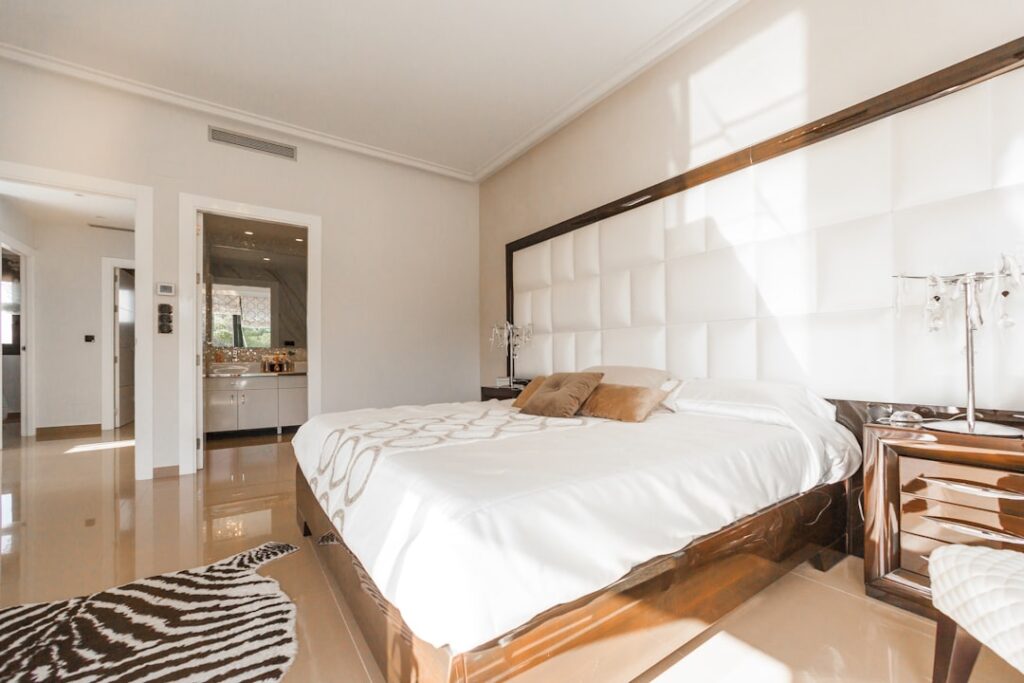Dubai’s real estate market has emerged as one of the most dynamic and attractive investment landscapes in the world. Over the past two decades, the city has transformed from a modest trading port into a global hub for business, tourism, and luxury living. This rapid development has been fueled by a combination of strategic government initiatives, a robust economy, and a diverse expatriate population.
The allure of Dubai lies not only in its iconic skyline, featuring architectural marvels like the Burj Khalifa and the Palm Jumeirah, but also in its tax-free environment and high standard of living. As a result, both local and international investors are increasingly drawn to the opportunities that this vibrant market presents. The real estate sector in Dubai is characterized by its resilience and adaptability.
Despite global economic fluctuations, the market has shown remarkable recovery and growth, particularly following the COVID-19 pandemic. The government’s proactive measures, such as the introduction of long-term visas for expatriates and various incentives for property buyers, have further stimulated interest in real estate investments. With a diverse range of properties available, from luxury villas to high-rise apartments, Dubai caters to a wide array of investors looking to capitalize on the city’s ongoing development and increasing demand for housing.
Key Takeaways
- Dubai’s real estate market offers a diverse range of investment opportunities for both local and international investors.
- Expats need to be aware of the legalities and regulations surrounding property ownership in Dubai, including freehold and leasehold options.
- The top areas for investment properties in Dubai include Downtown Dubai, Dubai Marina, and Palm Jumeirah, offering high rental yields and potential for capital appreciation.
- Investment properties in Dubai range from luxury apartments and villas to commercial properties and off-plan developments, catering to different investor preferences.
- Expats have various financing options available for property investment in Dubai, including mortgages from local and international banks.
Understanding the Legalities and Regulations for Expats
Navigating the legal landscape of Dubai’s real estate market can be complex, especially for expatriates unfamiliar with local laws and regulations. One of the most significant aspects to consider is property ownership rights. In Dubai, expatriates are allowed to purchase property in designated freehold areas, which are specifically allocated for foreign ownership.
These areas include popular locations such as Dubai Marina, Downtown Dubai, and Jumeirah Lake Towers. Understanding these zones is crucial for expats looking to invest, as it determines where they can legally acquire property. In addition to ownership rights, expats must also be aware of the legal processes involved in purchasing property.
The transaction typically begins with a Memorandum of Understanding (MoU) between the buyer and seller, outlining the terms of the sale. Following this, a deposit is usually required, often around 10% of the property’s value. The next step involves registering the property with the Dubai Land Department (DLD), which requires both parties to present necessary documentation, including identification and proof of funds.
It is advisable for expats to engage a local real estate agent or legal advisor who can guide them through these processes and ensure compliance with all regulations.
Top Areas for Investment Properties in Dubai
When considering investment properties in Dubai, certain areas stand out due to their potential for capital appreciation and rental yields. One such area is Dubai Marina, renowned for its stunning waterfront views and vibrant lifestyle. This district attracts both tourists and long-term residents, making it an ideal location for rental properties. The demand for apartments in Dubai Marina remains consistently high, driven by its proximity to key attractions such as JBR Beach and numerous dining and entertainment options.
Another prime location is Downtown Dubai, home to iconic landmarks like the Burj Khalifa and The Dubai Mall. This area is not only a tourist hotspot but also a business center, attracting professionals who seek to live close to their workplaces. Properties in Downtown Dubai tend to command premium prices, but they also offer substantial rental returns due to their desirability.
Investors looking for luxury properties may find opportunities in this area particularly appealing. For those seeking more affordable options without compromising on quality, areas like Jumeirah Village Circle (JVC) and Dubai Sports City have gained popularity among expats and investors alike. JVC offers a mix of residential apartments and villas at competitive prices, making it an attractive choice for families and young professionals.
Meanwhile, Dubai Sports City is known for its sports-themed developments and community-oriented lifestyle, appealing to both residents and investors looking for long-term growth potential.
Types of Investment Properties Available
Dubai’s real estate market offers a diverse array of investment properties catering to various preferences and budgets. Residential properties are the most common type of investment, encompassing apartments, villas, and townhouses. Investors can choose from luxury high-rise apartments with stunning views or spacious villas in gated communities that provide privacy and security.
The choice largely depends on the investor’s target market—whether they aim to attract affluent tenants or families seeking more space. Commercial properties also present lucrative investment opportunities in Dubai. These include office spaces, retail units, and warehouses.
The demand for commercial real estate has been bolstered by the city’s status as a business hub, attracting multinational corporations and startups alike. Investors interested in commercial properties should consider locations with high foot traffic or proximity to major business districts to maximize their returns. Additionally, off-plan properties have gained traction among investors looking for potential capital appreciation.
These properties are sold before construction is completed, often at lower prices than completed units. While investing in off-plan properties carries some risks—such as project delays or changes in market conditions—successful investments can yield significant returns once the property is completed and operational.
Financing Options for Expats
Financing options for expatriates looking to invest in Dubai’s real estate market have become increasingly accessible over recent years. Many banks and financial institutions offer mortgage products specifically designed for non-residents. Typically, expats can secure financing for up to 75% of the property’s value, depending on their financial profile and the lender’s policies.
This allows investors to leverage their capital effectively while minimizing upfront costs. When applying for a mortgage as an expat, it is essential to provide comprehensive documentation that demonstrates financial stability. Lenders typically require proof of income, bank statements, credit history, and identification documents.
Additionally, some banks may impose specific eligibility criteria based on nationality or residency status. Therefore, it is advisable for expats to shop around and compare different mortgage products to find the best terms that suit their investment strategy. Moreover, alternative financing options such as developer payment plans are also available for those investing in off-plan properties.
Many developers offer flexible payment structures that allow buyers to pay in installments over the construction period. This can be an attractive option for investors who prefer not to take on immediate debt while still securing a property in a growing market.
Tax Implications for Expats Investing in Dubai
One of the most appealing aspects of investing in Dubai’s real estate market is the favorable tax environment for expatriates. The United Arab Emirates (UAE) does not impose income tax on individuals or capital gains tax on property sales, making it an attractive destination for foreign investors seeking to maximize their returns. This tax-free status significantly enhances the profitability of rental income generated from investment properties.
However, while there are no direct taxes on property ownership or rental income, investors should be aware of certain fees associated with property transactions. For instance, when purchasing a property, buyers are required to pay a registration fee to the Dubai Land Department, typically around 4% of the property’s value. Additionally, there may be service charges associated with maintaining common areas in residential buildings or communities.
It is also important for expats to consider their home country’s tax obligations when investing abroad. Some countries may require their citizens to report foreign income or pay taxes on overseas investments. Therefore, it is advisable for expatriates to consult with tax professionals familiar with both UAE regulations and their home country’s tax laws to ensure compliance and avoid any potential pitfalls.
Tips for Successful Property Investment in Dubai
Investing in Dubai’s real estate market can be highly rewarding if approached strategically. One key tip for success is conducting thorough market research before making any investment decisions. Understanding current market trends, property values, and rental yields in specific areas can provide valuable insights into where to invest.
Engaging with local real estate experts or attending property exhibitions can also help investors gain a deeper understanding of the market landscape. Another important consideration is diversification within one’s investment portfolio. Rather than concentrating all funds into a single property type or location, investors may benefit from spreading their investments across different asset classes or geographical areas within Dubai.
This approach can mitigate risks associated with market fluctuations while maximizing potential returns from various sources. Additionally, maintaining a long-term perspective is crucial when investing in real estate. While short-term gains may be enticing, real estate is generally considered a long-term investment that requires patience and careful management.
Investors should be prepared for fluctuations in property values and rental demand over time while focusing on building equity through consistent property management and strategic improvements.
Making Informed Investment Decisions in Dubai
Investing in Dubai’s real estate market offers numerous opportunities for expatriates seeking growth and diversification in their portfolios. By understanding the legalities involved, exploring various property types, and leveraging financing options effectively, investors can navigate this vibrant market with confidence. Moreover, being aware of tax implications and employing strategic investment practices can further enhance their chances of success.
As Dubai continues to evolve as a global city with ambitious development plans and a thriving economy, the potential for lucrative real estate investments remains strong. By staying informed about market trends and making well-researched decisions, expatriates can position themselves advantageously within this dynamic landscape while enjoying the benefits of living in one of the world’s most exciting cities.
If you are an expat looking to invest in property in Dubai, you may want to consider leasing properties in the city. One helpful article to check out is Top Tips for Leasing Properties in Dubai, which offers valuable advice for navigating the rental market in Dubai. Additionally, if you are looking for affordable monthly rental apartments in Dubai, you can explore options at DSS Properties. Their services also include assistance with finding the perfect investment property in Dubai for expats, making the process easier and more efficient.
FAQs
What are the regulations for expats buying investment property in Dubai?
Expats are allowed to buy investment property in designated areas of Dubai. They can own freehold property in these areas, which include popular areas such as Dubai Marina, Downtown Dubai, and Palm Jumeirah.
What are the costs associated with buying investment property in Dubai?
Expats should budget for costs such as property registration fees, agent fees, and maintenance fees. Additionally, there may be taxes and service charges to consider.
What are the potential returns on investment property in Dubai?
The potential returns on investment property in Dubai can vary depending on factors such as location, property type, and market conditions. Rental yields in Dubai are generally competitive compared to other global cities.
What are the financing options for expats buying investment property in Dubai?
Expats can obtain financing from local and international banks in Dubai. The maximum loan-to-value ratio for expats is typically 75% of the property value.
What are the visa requirements for expats buying investment property in Dubai?
Expats who purchase property in Dubai may be eligible for a residency visa. The property must meet certain value requirements, and the visa is subject to renewal.




